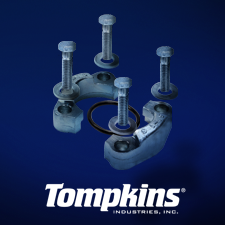Warning signs for a Low Valuation
by Scott Benfield, Benfield Consulting and Rich Vurva, Industrial Supply magazine
 |
| Scott Benfield |
 |
| Rich Vurva |
The subject of valuations for wholesaler-distributors is an increasingly popular topic. Our predictions are that many owners will sell their companies in the next decade, with drivers being third-generation private management, a slow growth environment, higher cost of borrowing, and lessened interest by financial buyers for domestic firms.
Our research in Mergers and Acquisitions in the wholesale sector finds that many private owners have only a vague sense of the value of their firm and many find that their firm won't fetch the values they believe they should. There are common signs in lower-than-expected valuations, and most buyers are aware of seller attempts to hide these issues to drive a higher sales price. Our objective, in this article, is to give distributors who wish to sell their business some common warning signs that buyers look for when downgrading the price of potential acquisition.
Sub-Par Growth
Most wholesale industries have rebounded from the Great Recession, although the growth rate is less than one would typically find in a recovery. It's important for wholesalers to know their industry growth rates and how they compare in order to position their firms for maximum value. In a recent incident, we found where the real industry growth rate for the past five years was approximately five percent per year, with the only year in decline being 2009. The market growth rate was 3% and the producer price index grew at 2% per year. The firm had sales of approximately $100MM but the growth rate had been flat for five years. Our report to executive management was that sales should be approximately $118 million if the firm was keeping up with market growth and, because of this, it was likely that potential suitors would downgrade the sales price.
When positioning the firm for sale, it's important to know how the company compares to other intra-industry firms. Industry growth statistics are available from associations, trade publications, buying groups and peer groups. A firm that is not growing at or above market growth rates shows potential problems, including management that is out of touch with customers, problems with the sales force, and a value proposition that may be in decline and not what customers want. In addition to sub-par growth fetching a low valuation, another issue is an uneven and below average operating profit stream.
Value and Operating Profits
Few metrics influence a winning valuation like above average and rising operating profits. We find many wholesalers with operating profits in the range of 2% to 3% of sales. Typically, this level of performance secures little more than asset value for the firm. Also, many wholesalers key in on a high earnings year where aberrations such as commodity inflation or white hot segment growth drives the financials to the top of the industry. Banner years are common in wholesaling but unless the superior performance is consistent, don't expect buyers to pay a premium for a year or so of fantastic performance. Savvy buyers review three to five years of history to understand how the firm has performed over time. Discounting cash flows for valuation often looks at a seven to 10 year history of earnings, and inconsistencies in performance are easily spotted. If you aren't managing the firm for consistent and above average operating profits and earnings, it's hard to point to one or two year's great performance and convince buyers they should pay a premium price.
New Value Streams and Long Distance Supply Chains
Suitors pay more if the firm can demonstrate new and unique value streams. According to McKinsey's research, superior value is driven by new product and service launches, new customers, and bolt-on acquisitions that increase long run profits over goodwill. Wholesalers who want to sell at higher valuations need to demonstrate long lasting growth in these areas. Demonstrations of successful new service development for fee income and product introductions that are at the forefront of application technology are especially attractive. Far too many wholesalers are caught in a world of selling existing products to existing customers and, over time, value diminishes as the product technology, differentiation and selective distribution rights winds down. Since many distributor products are mature, it's also important to convince buyers that the firm is up to date on the best of price and service from a global perspective.
Distributor products can be sourced from around the world, and there are many low-cost/high-quality products that can be sourced through long-distance supply chains. Since the cost of goods for most distributors is three-quarters of the sales price, not being able to demonstrate the best global source of supply is of serious concern to buyers. Wholesalers should constantly monitor their major product lines and high sales SKUs to remain competitive and keep the firm's competitiveness viable.
Miracle Values are Rare
In the buying frenzy of pre-recessionary times, double-digit multiples were common. In most instances, these valuations didn't pan out as the buyers weren't able to service the debt, as sales drastically fell during the Great Recession. The "miracle valuations" of yesteryear are much less probable in the coming decade. Wholesalers that sell for superior prices will do so through managing their operating streams, successfully adding new products and new services, making smart acquisitions, and engaging the best global supply sources. They will also follow industry growth rates and demonstrate consistent growth performance over market and inflation growth.
Benfield Consulting and Industrial Supply magazine are teaming together on a research project on mergers and acquisitions for the distribution industry. You can participate by answering an online survey. You can find the survey by clicking here.
Benfield Consulting is a consultancy for B2B channels and located in Chicago. The firm's site can be seen at www.benfieldconsulting.com. Industrial Supply magazine is a bi-monthly publication for distributors in industrial, MRO, and contractor markets. The publication's site is www.industrialsupplymagazine.com.












